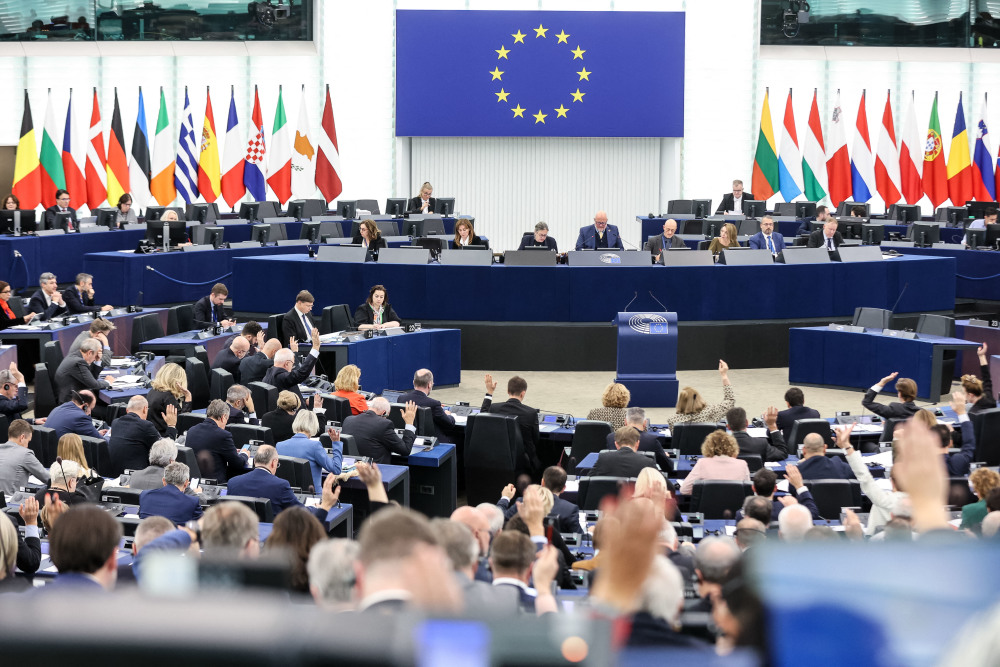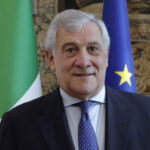Citizens of the European Union are called to the polls on June 9 to elect the 81 French MEPs.
A few weeks ago, the Maison de l’Europe in Douai organized a morning dedicated to the European Union, a few months away from this meeting. The objective? “To make it known”, “to show that it is not something completely abstract”, supports Karine Evanno, the director of the structure. Several witnesses were invited to illustrate the considerable place that the EU occupies in the daily lives of French and European citizens, even if it is sometimes complicated to realize it. Attempt to enlighten.
The European Union is first of all exclusive powers, for which Europe acts alone, but with the obligatory agreement of all the Member States. They concern the customs union, monetary policy, competition policy or even the negotiation of trade and international agreements… Added to this are other areas for which the EU supports, coordinates or complements the action of the countries of the union: public health, industry, culture and tourism, administrative cooperation…
Concretely, this takes the form of a considerable impact in our daily lives: food product labels which govern the composition of numerous products and their origin (PDO, IGP, organic farming label, etc.), standards for manufacturing objects, commercial regulations or still multiple aids.
The CAP, or common agricultural policy, is one of them. But the EU has many other aid policies for states. Feder (European Regional Development Fund), Interreg or ESF (European Social Fund) programs, the opportunities are multiple and affect communities, associations and individuals.
For all the players present at the House of Europe, it is this financial aid from the EU that is first highlighted. Raoul Daubresse is coordinator of the Interreg Life Anthropofens program for the Hauts-de-France Conservatory of Natural Spaces. His project aims to restore the peatlands of Hauts-de-France and Wallonia (Belgium). “60% of the budget is European,” he confirms. It is also a lever for action that makes it easier to unlock other subsidies. »
Thanks to European funding, the conservatory and its foreign partners can implement scientific actions to better understand peatlands. The conservatory also carries out restoration actions to preserve these threatened spaces which are nevertheless biodiversity reserves and important carbon sinks at a time of ecological transition. The gains in terms of communication are also major.
“When we are a town of 10,000 inhabitants, we look for subsidies from everywhere,” explains Jessica Tanca, teaching assistant in Aniche in the North. Thanks to European funds, the municipality of Douaisis was able to carry out a rehabilitation and energy renovation project for its Marcel Cachin nursery school. 170,000 euros in aid via the ERDF out of a total budget of 3.7 million euros.
Another witness, Michel Delille is a farmer based in Brunémont (North). He believes that “farmers live in Europe. On the one hand, she will help us, on the other she will cheat us. » According to him, many farmers, established organically like him or not, would not exist without aid from the European Union. Recently, for example, the ERDF covered 60% of an investment it had to make for the purchase of a refrigerator.
Like all the witnesses, he nevertheless mentions the difficulties of accessing financing, “the paperwork” which occupies him 7 to 8 hours per week according to his estimates, and the PAC files, not an easy task. A “big time of year” during which he is helped by an accountant.
His testimony echoes the words of Raoul Daubresse and Jessica Tanca. They all talk about the engineering needed to set up projects. “You have to know the subtleties of the EU” and demonstrate “extreme rigor” concedes the first. “It’s very complicated to put together the files” explains the second simply, particularly for smaller communities which do not have dedicated human resources.
“Do better and more”
Despite everything, for all the witnesses present at the House of Europe, the European Union will make it possible to “do better and more”. “Whatever the agricultural holding, Europe is present,” illustrates Michel Delille. Before concluding: “A farmer who doesn’t vote in the European elections, I don’t understand. And even as a citizen! »
This article is originally published on terres-et-territoires.com/








